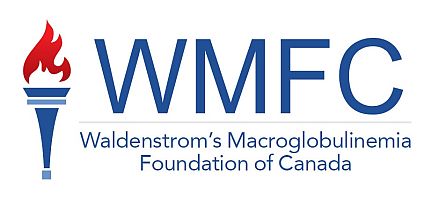The WMFC and IWMF are co-funding cutting edge WM research at the Odette Cancer Centre, Sunnybrook Hospital, in Toronto.
Two major WM events are occurring at Sunnybrook. The first is Dr. Neil Berinstein’s pan-Canadian BRAWM trial that is headquartered at Sunnybrook. This exciting trial combines Bendamustine, Rituximab and the BTK inhibitor, Acalabrutinib (BRA) for first line treatment in WM. Within a few months it is expected that the trial will have filled all 59 openings in this coast-to-coast trial.
The second event arises from the first. Patients in the BRAWM trial have blood and marrow samples taken before, during and after the trial. Trial patients supply blood and marrow samples before the trial and at 7 and 12 months during the trial; the final samples are taken 18 months after the trial start. Please note, every WM drug you have ever taken was made possible not by research alone but also by patients who enter clinical trials. The BRAWM trial is an opportunity for patients to receive cutting edge treatment and to drive the science of WM forward. The WMFC encourages patients to consider entering a clinical trial whenever possible.
These samples will be analyzed genetically by Dr. Signy Chow, one of two Robert A. Kyle Award winners for 2022, to track genetic changes that occur during treatment. These changes are referred to as genomic clonal evolution. The WMFC and IWMF are co-funding this research to the tune of some CAD$200,000.
The concept behind this analysis is that genomic clonal evolution can develop mutations that have the potential to be resistant to the initial treatment. But by tracking these changes, there is a potential to target the mutated genes. For example, Dr. Steven Treon’s lab has already shown that CXCR4 mutations impede the efficacy of BTK inhibitors like Ibrutinib or Zanubrutinib. Dr. Treon’s Bing clinic is now combining Mavorixafor (a CXCR4 antagonist) with Ibrutinib in a clinical trial in an effort to improve clinical results.
At Sunnybrook, Dr. Chow will use next generation sequencing to track 27 genes which have previously been shown to mutate during the clinical course of some WM patients. This will provide a powerful tool, as it will allow the comparison of the genomic changes in patients with good responses to those with less than good responses. The goal is to identify gene mutations that predict for response. As early data from the BRAWM trial is showing excellent clinically defined responses in almost all participants, minimal residual disease (MRD) measurements may help sort patients into different response categories.
As well, Dr. Chow will be looking to see if parts of chromosomes are altered (duplicated or deleted) during the course of treatment. Some chromosome changes, such as chromosome 6 alterations, are known to be associated with WM. Gene deletions will also be factored into this study. And finally, Dr. Chow will have the opportunity to run the genetic analysis not just on marrow samples but also, simultaneously, on circulating tumor DNA (ctDNA) in the blood stream. This may allow for future testing to be run on blood samples instead of bone marrow.
Dr. Chow has provided her first, six month report and the WMFC and IWMF are pleased to continue funding for this worthwhile endeavour. The goal is to seek out new genetic targets for treatment, much as Ibrutinib was developed to target MYD88 mutations in select blood cancers.
